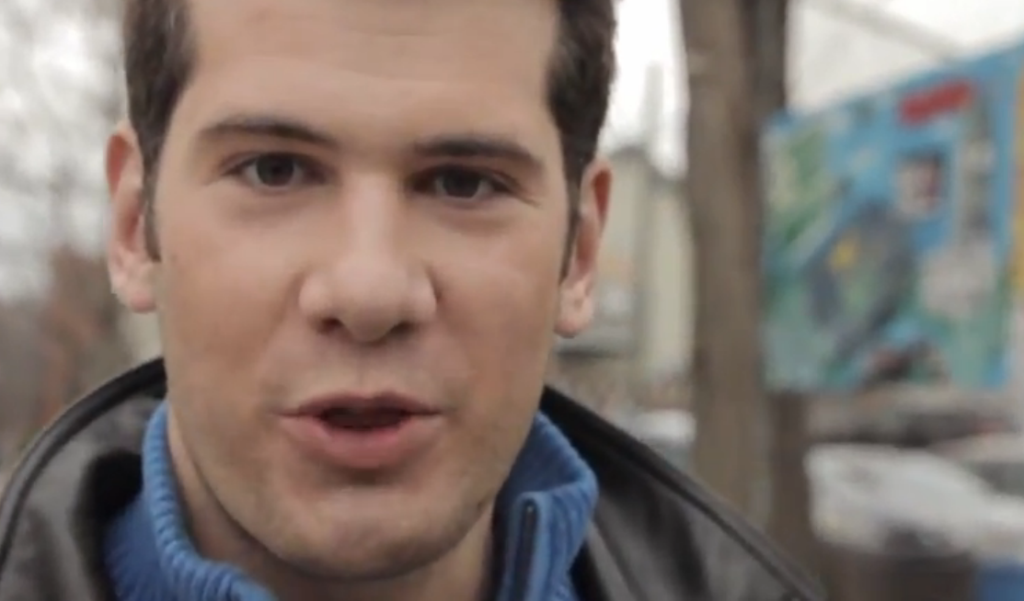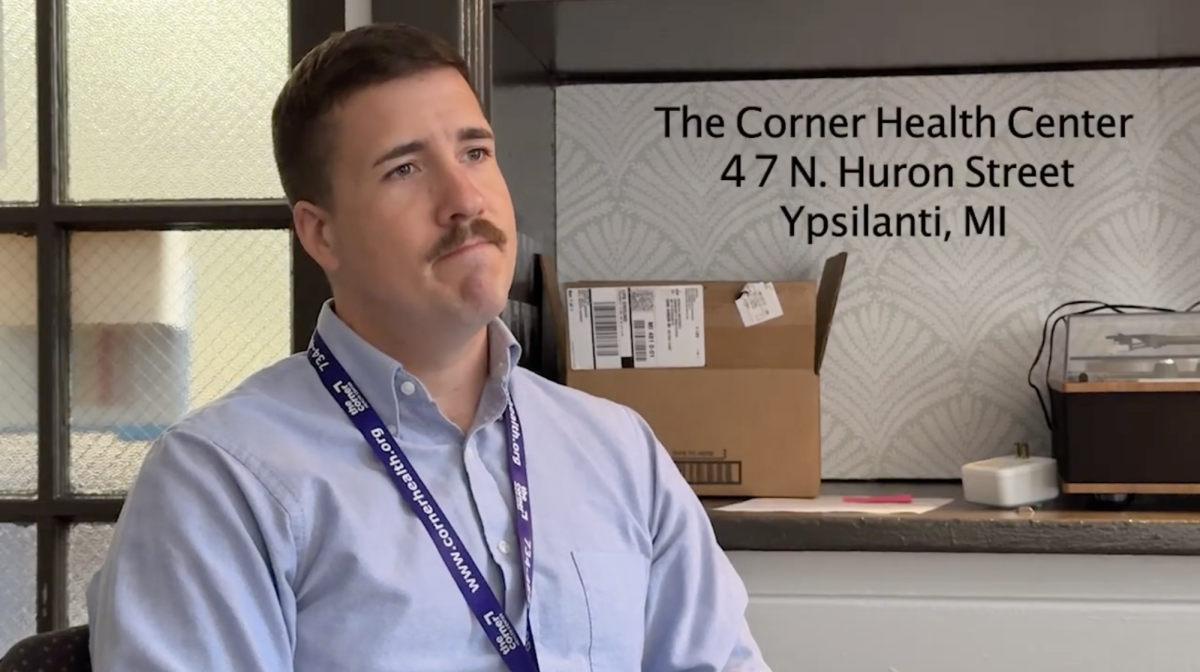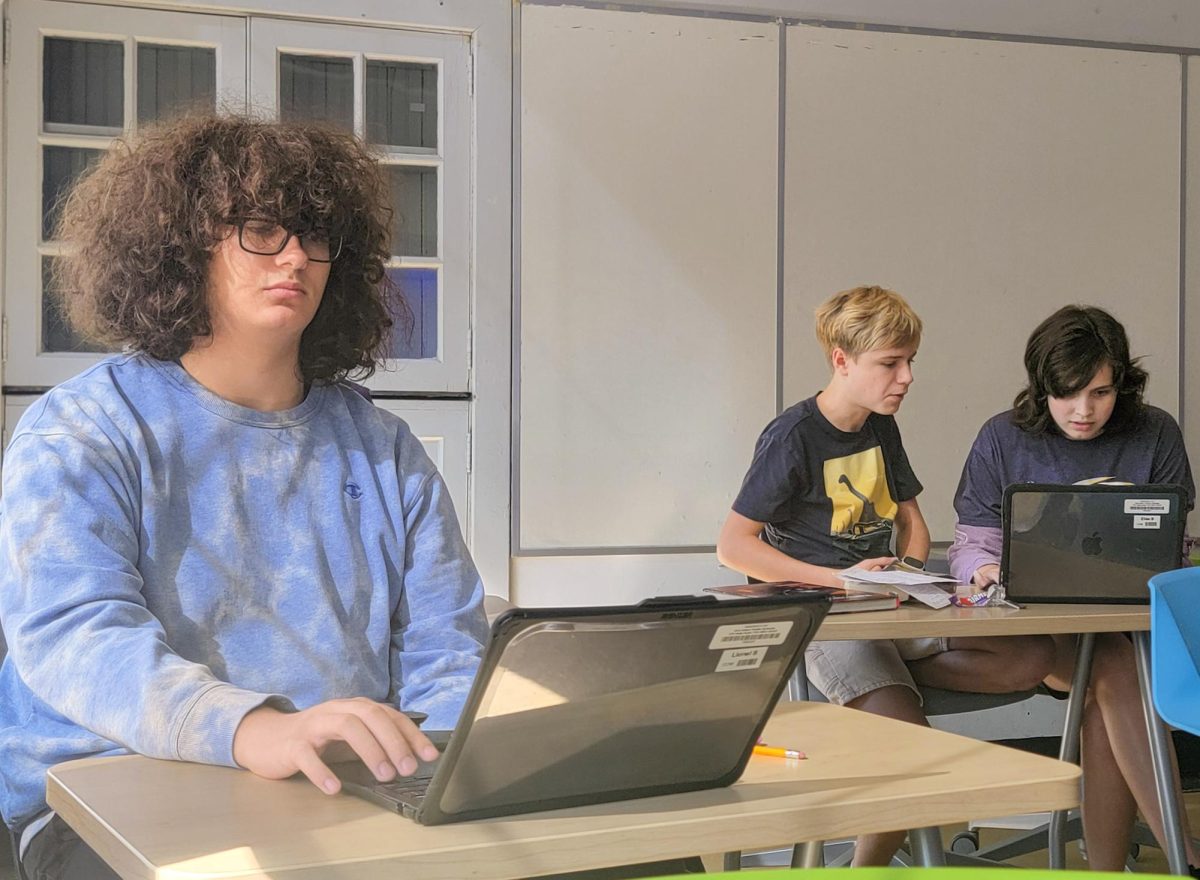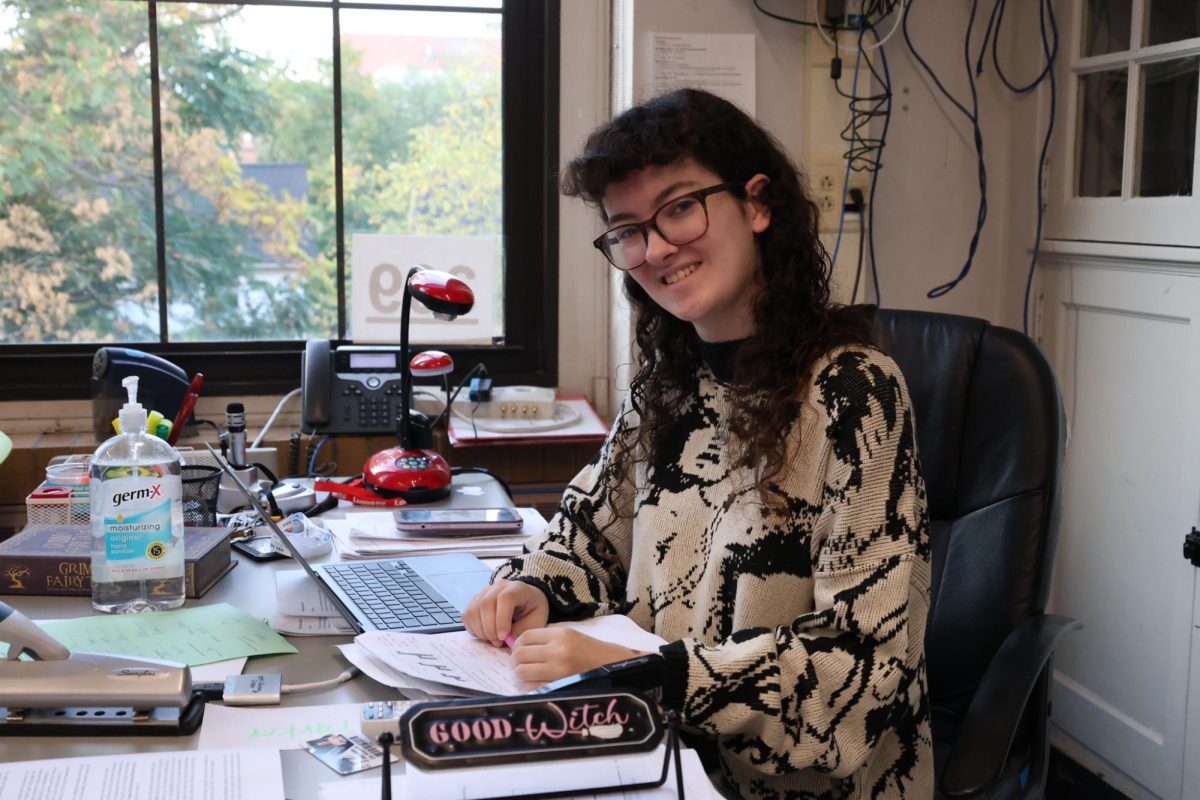This article appeared in print on December 18, 2012.
Community High School senior Dan Roy was on the way to his car after sixth block on Nov. 19 when he was approached by a woman he didn’t know. She asked if he could answer some questions about his opinion on the legalization of marijuana. Roy agreed to interview on camera for a man who was speaking to students right outside of school property.
A week and a half later, he walked into Mock Trial and his teammates were watching a video online on Fox News. The eight minute piece contained clips from Roy’s interview; this was news to him. He had been told the information was for a survey.
The video in question, entitled “MARIJUANA!! The Truth!” and produced by comedian and Fox News contributor Steven Crowder, came as a surprise to CHS students and staff when it debuted online on Fox Nation on Tuesday, Nov. 27. A comedic opinion piece that argues against the legalization of marijuana, the video includes interviews with seven CHS students, some with their faces blurred, others with their identities uneclipsed.
During the CHS portion of the video, the camera pans across the front of the school, and then cuts to clips of CHS students, against the backdrop of the CHS mural on the back fence, talking about their own marijuana use and opinions on the legalization of marijuana. The majority of the clips featured students admitting that they had used marijuana or explaining that they didn’t believe marijuana was as harmful as other substances.
Ann Arbor Public Schools Director of Communications Liz Margolis informed CHS Dean Jen Hein about the video the night it was posted. Hein had not known that Crowder was conducting interviews with students near campus.
“My reaction was that I was very disappointed on many levels,” said Hein. “I was disappointed in the bias, the poor editing, the insertion of what appeared to be attempts at sarcasm and humor, for a very serious subject. And I immediately became worried about the impact it was going to have on the students who participated and the impact on our school.”
The following day, Hein met with the students who had been interviewed in the video to have a conversation. Although she did make sure students informed their parents about the video—especially since local news site AnnArbor.com had also posted a link to the video—no students were punished.
Throughout her interviews with students, Hein did not speak to a single student who had been aware that the footage might end up on Fox News. Students also did not know how the film would be edited and how their responses would sound in the final video.
Freshman Thomas Brown*, who was interviewed, said that the video’s editing changed the context of his answers.
“He asked me if I smoke and I answered I have tried it once. He cut it so he said I have smoked,” said Brown. “He then asked if it was bad and I said I don’t really know, but I have heard it is harmless. He cut it so I basically said it was harmless.”
When Brown asked Crowder what the video was for, Crowder said that he was from Grand Rapids and was conducting a survey.
Sophomore Kelly Arnold and junior Alex Wood were on the back lawn while interviews took place and were approached by Hilary Korzon, Crowder’s wife, who asked them if they wanted to participate. Korzon came onto the back lawn to speak to students.
“It was just very, very friendly and you thought she was your buddy,” said sophomore Julie Yanar, who was also on the lawn at the time.
According to Wood, Korzen “kind of avoided the question” when Arnold asked what the interview was for.
“She said, ‘You know, just some small blog,’” said Arnold.
Arnold and Wood both declined to be interviewed. Yanar did agree to get in front of the camera, and told Crowder that she had never smoked marijuana. However, her quotes weren’t included in the video.
“He tried to flip my words upside down so I needed a little more time to think about the questions,” said Yanar.
Yanar was able to watch other students interview before it was her turn, and said she thought the clips that appeared in the video mischaracterized the students’ responses.
“[The students] were not like, ‘Oh, I smoke every day,’” said Yanar. “They didn’t sound that teenagery. [Crowder] just took the teenager words out, the teenager quotes, what they wanted to hear.”
Crowder and Korzon did not respond to requests for comment via email, Twitter, and phone.
In the video, all but two CHS students had their faces blurred so that their identities would be hidden. However, that didn’t keep them from being recognized by those who knew them.
“There were attempts to blur the faces of students, but there other characteristics that were very easily identifiable to those of us who work and go to school at Community High School,” said Hein. Students’ hair and clothing were visible, and their voices were present in the video.
“I was very, very angry because I realized that they didn’t blur the faces out that well and they didn’t blur the voices out so you are able to tell who it was and that is very very bad for the students here,” said Yanar.
Students had to have faces blurred if they were under 18 and didn’t have parental consent to be interviewed.
CHS’s role in the video adds another layer to public perception of the school in Ann Arbor. Because of its alternative, open curriculum, CHS is sometimes stereotyped as a “pothead school.” Hein said she thought that Crowder’s decision to use CHS in the video was likely based on this stereotype, but she also stressed that the stereotype is a myth.
“It’s not the reality around substance use and issues with substances,” said Hein. “Our statistics are proportional to what happens in other high schools. We don’t want anybody doing anything illegal. We don’t want anybody doing anything that may have implications for their health.”
However, despite the video’s focus on student drug use, Hein said she has not received negative feedback or concerns from any parents or district administrators since the video’s publication. She read through the AnnArbor.com comments on the video and found that most negative responses were directed towards the production of the video, not towards CHS or its students.After the video’s posting, a number of CHS students and alumni took to social media, defending the school and expressing frustration that Crowder didn’t focus on any positive aspects of the school’s reputation.
Kate Parker*, the mother of a student in the video, said she considers the stereotypes unfounded, and that, as a parent, they haven’t affected her opinion of the school.
“We love the rigor of the CHS curriculum, the staff’s dedication to the students and the strong anti-drug stance that Community High School has,” Parker said. “Many CHS students think that the prevalence of drugs at Community is not more frequent than other public and private schools.”
Hein said the video won’t cause any changes in CHS’s approach to education about marijuana. She doesn’t believe the video is an accurate representation of Ann Arbor high school students’ knowledge about marijuana, and she thinks students are generally well-educated. CHS students learn about substance use through the health curriculum and counselors or school officials, and often through athletic programs. However, Hein does want to students to be more educated about how to interact with the media, and how to have control over other aspects of public presentation, such as their social media profile.
“This isn’t about those specific students,” said Hein. “This is about understanding that this is something that can happen to anybody that gives a response when you’re being recorded or you’re being filmed.”
*name has been changed to protect identity of students who appeared anonymously in the video















